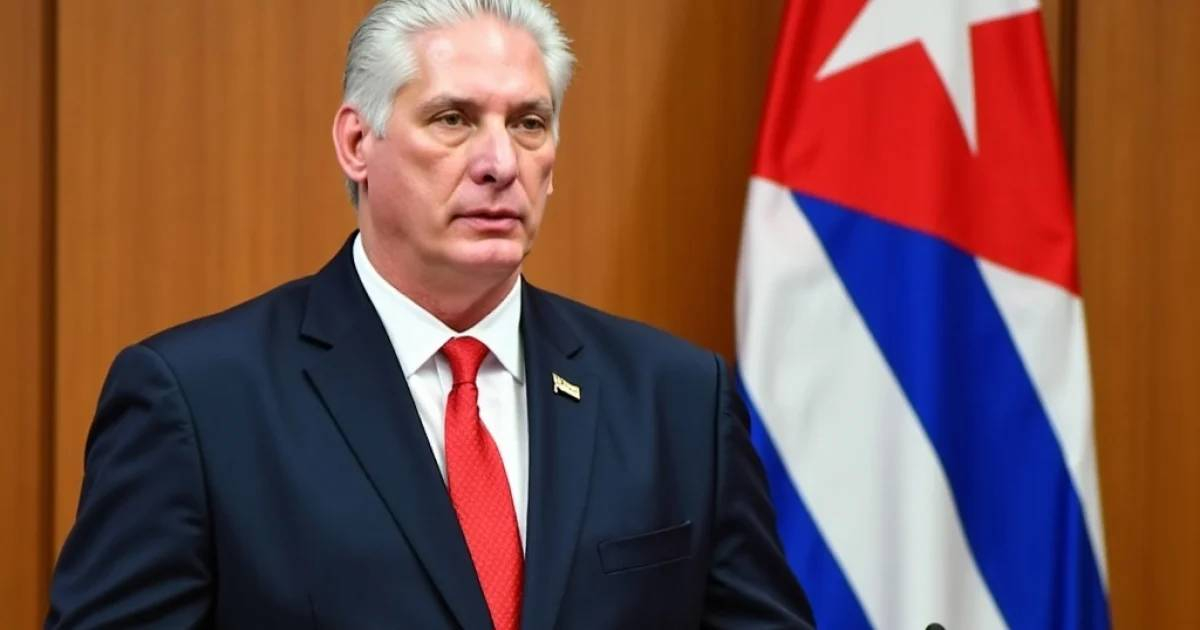
Related videos:
The Cuban president, Miguel Díaz-Canel, expressed his sorrow following the confirmation of the deaths of 13 officers, non-commissioned officers, and soldiers during the explosion at a weapons storage facility in the military region of Holguín.
"It is deeply painful to confirm the passing of these colleagues. I extend my heartfelt condolences to their families and friends," stated the president on the social media platform X.
The Cuban government officially confirmed on Wednesday the death of the 13 missing individuals following the explosion that occurred in the town of Melones, municipality of Rafael Freyre.
According to an informative note from the Ministry of Revolutionary Armed Forces (MINFAR), the possible cause of the accident was an electrical failure caused by a short circuit within the facility.
Authorities indicated that they have been unable to access the exact location where the deceased are due to the extreme conditions on the ground.
The presence of toxic gases, severe structural damage, and the risk of new collapses make the area completely inaccessible. According to the analyses conducted, it was concluded that there is no possibility of life in the location.
The ministerial commission established to investigate the incident informed the families about the final outcome and officially declared the death of the 13 affected individuals. Among the victims are four officers —two with the rank of Major and two Second Corporals— and nine soldiers, some of whom were close to completing their military service.
Silence and indignation
The government's handling of the accident has generated outrage among the victims' families. Since last week, they have reported negligence, a lack of interest in starting rescue efforts, and a clear absence of information regarding the investigation.
Joel Queipo Ruíz, the first secretary of the Party in Holguín, previously explained that the risk of further explosions had prevented authorities from entering the affected area. He stated that specialized actions were being carried out in the surrounding zones while the situation was being assessed.
A call to reflection
The tragic event highlights the challenges Cuba faces in managing emergencies at military facilities, as well as the human impact of these tragedies. Meanwhile, Cubans and the affected families continue to grapple with the pain of a loss that, for many, could have been handled in a more transparent and effective manner.
Frequently Asked Questions about the Explosion in Holguín and the Cuban Government's Response
What was the cause of the explosion at the military warehouse in Holguín?
The explosion was caused by an electrical failure, specifically a short circuit inside the military facility in Melones, Holguín. This was the conclusion of the investigations conducted by the Ministry of the Revolutionary Armed Forces (MINFAR).
How many people died in the Holguín incident?
The Cuban government officially confirmed the death of 13 people, including four officers and nine soldiers, following the explosion at the military supply depot in Holguín.
Why haven't the bodies of the victims of the explosion in Holguín been recovered?
The authorities have indicated that the accident site is inaccessible due to the presence of toxic gases, structural damage, and the risk of further collapses. This complicated environment prevents access for the recovery of the bodies.
How has the Cuban government responded to the explosion in Holguín?
The Cuban government has been criticized for its lack of transparency and delayed response to the incident. Official statements arrived days after the explosions, and negligence and a lack of interest in rescue efforts have been noted.
How has the population reacted to the government's handling of the incident?
There has been outrage and criticism among the victims' families and the general population due to the silence and lack of clear information from the government regarding the incident and the measures taken.
Filed under: